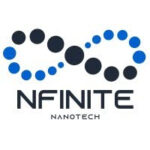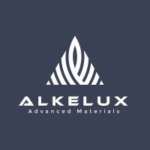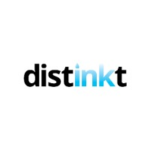Nanotechnology isn’t just helping food last longer. It’s enabling a smarter, more resilient food system, one that beats with intelligence, adaptability and purpose.
Here are five startups proving that nanotech is ready for the food system and why corporates should pay attention now:
Nfinite Nanotechnology – High-barrier SALD nanocoatings for sustainable packaging
Nfinite develops ultra-thin protective coatings that use nanotechnology to create invisible barriers against oxygen and moisture. Applied to recyclable and compostable packaging, these coatings give them the same protective performance as plastics, keeping food fresh for longer while reducing plastic dependency.
Metalchemy – Active antimicrobial nanomaterials in biodegradable packaging
Metalchemy embeds green nanoparticles with powerful antimicrobial properties directly into biodegradable, plant-based packaging. These materials actively eliminate bacteria, fungi, and viruses, extending freshness for highly perishable products like meat, cheese, and fresh produce, all without petrochemical plastics.
Alkelux– Circular bio-based nanomaterials for fresh produce preservation
Alkelux has developed a clean-label antimicrobial additive made from licorice industry byproducts. Incorporated into packaging, it extends the shelf life of fresh fruits and vegetables by up to seven days, with proven results in strawberries and blueberries. Unlike conventional additives that use heavy metals, Alkelux’s solution is fully biodegradable, safe for health, and aligned with circular economy principles.
Nanospy — Nano-enabled rapid pathogen detection
Nanospy has created nanosensors that can detect foodborne pathogens such as E. coli and Salmonella in minutes instead of days. Integrated into production lines or packaging, their technology enables real-time food safety monitoring, reducing costly recalls, protecting consumers, and reinforcing brand trust.
Distinkt — Nano-enabled inks for food traceability and authentication
Distinkt develops high-security inks containing nanoparticles that are invisible to the human eye but fluoresce under infrared light. These inks can encode dynamic, tamper-proof barcodes or QR codes on packaging, enabling companies to guarantee product authenticity and comply with upcoming traceability regulations such as the FDA’s FSMA 204.
These five startups son slo un ejemplo que muestra show that nanotechnology is not a distant promise, but a set of solutions already shaping the future of food preservation. For corporations, engaging with these innovators means more than testing new tools, it means accessing fresh opportunities to cut waste, comply with rising regulations, and differentiate through smarter, safer products.
In a food system under constant pressure, innovation won’t come from isolated advances but from the convergence of science and industry. Startups like these are building the foundations and corporations bold enough to partner with them will define what comes next.





